Vegan Smoothies Favorite Wholesome Plant-Based Recipes Madison Miller
Copyrights All rights reserved 2018 by Madison Miller and The Cookbook Publisher. No part of this publication or the information in it may be quoted from or reproduced in any form by means such as printing, scanning, photocopying, or otherwise without prior written permission of the copyright holder. Disclaimer and Terms of Use Effort has been made to ensure that the information in this book is accurate and complete. However, the author and the publisher do not warrant the accuracy of the information, text, and graphics contained within the book due to the rapidly changing nature of science, research, known and unknown facts, and internet. The author and the publisher do not hold any responsibility for errors, omissions, or contrary interpretation of the subject matter herein. This book is presented solely for motivational and informational purposes.
The recipes provided in this book are for informational purposes only and are not intended to provide dietary advice. A medical practitioner should be consulted before making any changes in diet. Additionally, recipes cooking times may require adjustment depending on age and quality of appliances. Readers are strongly urged to take all precautions to ensure ingredients are fully cooked in order to avoid the dangers of foodborne illnesses. The recipes and suggestions provided in this book are solely the opinion of the author. The author and publisher do not take any responsibility for any consequences that may result due to following the instructions provided in this book.
The nutritional information for recipes contained in this book are provided for informational purposes only. This information is based on the specific brands, ingredients, and measurements used to make the recipe and therefore the nutritional information is an estimate, and in no way is intended to be a guarantee of the actual nutritional value of the recipe made in the readers home. The author and the publisher will not be responsible for any damages resulting in your reliance on the nutritional information. The best method to obtain an accurate count of the nutritional value in the recipe is to calculate the information with your specific brands, ingredients, and measurements. 
Contents
JUST FOR MY READERS! 100% FREE BONUS! To thank you for downloading my book, here is a FREE BOOK that I am sure you will enjoy! Click here to get your FREE gift. FOR A LIMITED TIME ONLY Get this fitness book completely FREE Get in Shape! The No Excuse at Home Training Program for a Healthy Lifestyle

Click here to download your FREE copy!
Introduction : Vegan FAQs
Youre vegan? What do you even eat?
Youve probably heard this question 101 times since you decided to make the ethical and sustainable choice to go vegan.
Your answer is probably, Umm everything that doesnt come from animals? People are usually flabbergasted by this, but the fact is that a lot of food is already veganand with a little creativity and the right ingredients, you can vegan-ify almost anything else. People often think that being vegan is limiting or a diet, but thats just not the case. Most vegans love food; they just choose to make their ethics and values a priority when choosing what to eat. If youre new to vegan cooking, you might have some questions, so before you jump into the delicious and easy recipes in this book, take some time to read the introduction for tips, tricks, and helpful information.
Where do you get your protein?
This is another annoying question that vegans get asked all of the time. People act like meat and dairy are the only sources of protein in the world! The fact is that most people in developed countries actually get too much protein.
If youre new to the vegan diet, you should spend some time counting protein and planning your meals to make sure youre getting enough, but rest assured that protein deficiency is relatively rare. Amino acids are organic compounds responsible for a wide variety of processes in the body. When they bind together in long chains, they make proteins. While our bodies can produce many of their own amino acids, there are nine types which the human body cannot create on its own. This means that we rely on our food for these. Something vegans should keep in mind is that not all sources of protein have all of the amino acids that you need.
In fact, most dont. But no need to worry: As long as you are able to get all of these amino acids within one day, you should be fine. Practically, that means that you cant rely on just one or two sources of protein a day. When youre eating vegan, a good rule of thumb is that each meal should have two kinds of protein. This may sound like trouble, but youd be surprised how many foods contain protein. Once you get used to eating a vegan diet and creative cooking, getting enough protein is something you wont even think about.
Check with a nutritionist or online to find out how many grams of protein you should be eating in a day. To make things easier, each of the recipes in this cookbook details how many grams of protein are in a serving. If youre sick of answering the protein question, check out these common vegan proteins, how to use them, and their nutritional benefits. Black Beans Did you know that the darker the color of a bean, the more antioxidants it has? Black beans are definitely a vegan staple. With 15 grams of protein per cooked cup, plus 15 grams of fiber, black beans are a great way to make a meal more filling. From Mexican food to brownies (thats right, brownies) this cookbook has plenty of recipes that integrate this filling bean.
Walnuts Nuts and seeds are another source of protein for vegans. Rich in healthy fats and protein, this nut is a great snack or addition to a meal to help you feel full. Add crushed walnuts to desserts, pasta, or even pizza! Quinoa Quinoa might just be the king of vegan protein. Once eaten by Incan warriors, this seed (yes, quinoa is technically a seed, although its served as a grain) serves up a complete amino acid group. That means that if you eat quinoa, you wont have to worry about combining proteins. Quinoa is great in salads, made into a veggie burger, or served with curry.
You can even find pasta made out of quinoa at your local health food store. Chickpeas This versatile legume isnt just for hummus (although hummus is a delicious vegan staple you should master). Chickpeas have 14.5 grams of protein per cooked cup, plus 11 grams of fiber, manganese, and folate, a nutrient important for women. Chickpeas are great in curries, salads, stews, and so much more. Oats Theres no vegan breakfast quite as delicious as oatmeal loaded with cinnamon and brown sugar, and thats hardly the only good thing about oats. Oats have been proven to help reduce cholesterol, so if you went vegan for your heart health (good move) you should add oats into your diet whenever you can.
Gluten-free? No worries! You can easily find gluten-free oats and oat flour. Tofu Made from soy beans, tofu is a vegan classic, but most non-vegans turn their nose up at it. Why has tofu gotten such a bad reputation? Who knows, but with the recipes in this book, even your carnivorous friends will become tofu enthusiasts. With just 178 caloriesbut 12 grams of proteinper serving, no vegan diet is complete without tofu. Bread it, fry it, bake it, or blend it; the possibilities are endless, so get creative with this protein-packed treat. Be sure to buy GMO-free tofu, as the health effects of consuming genetically modified soybeans are unclear.
Next page

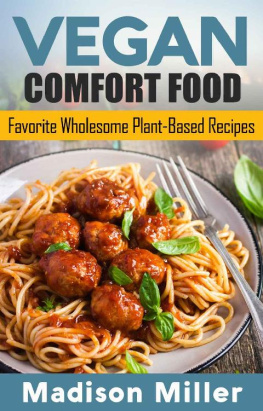

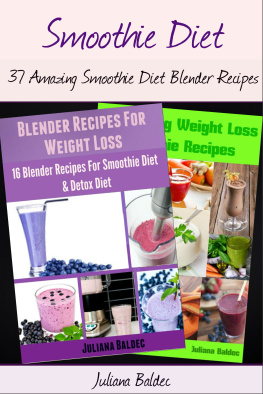
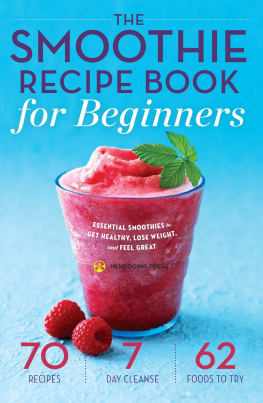
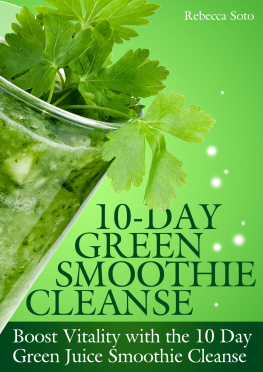
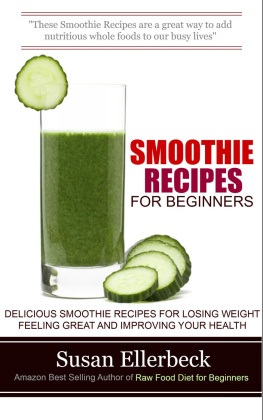
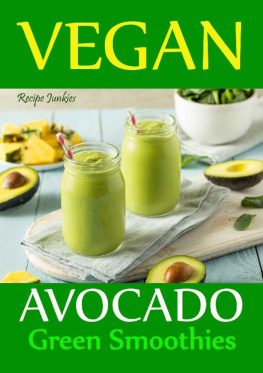
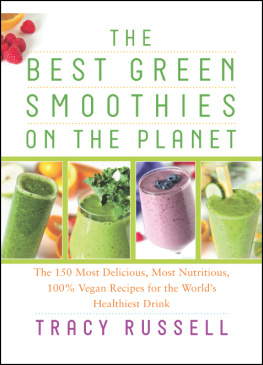
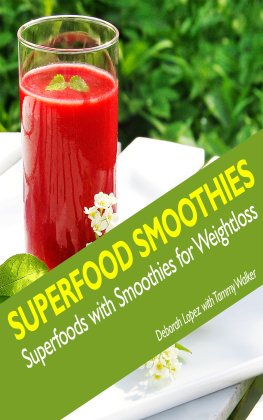
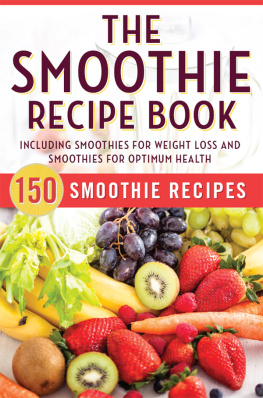
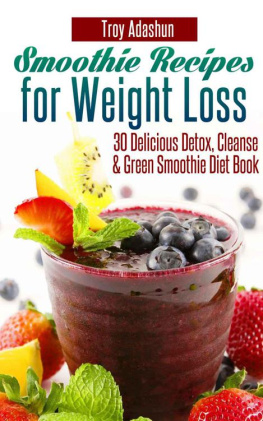

 Click here to download your FREE copy!
Click here to download your FREE copy!